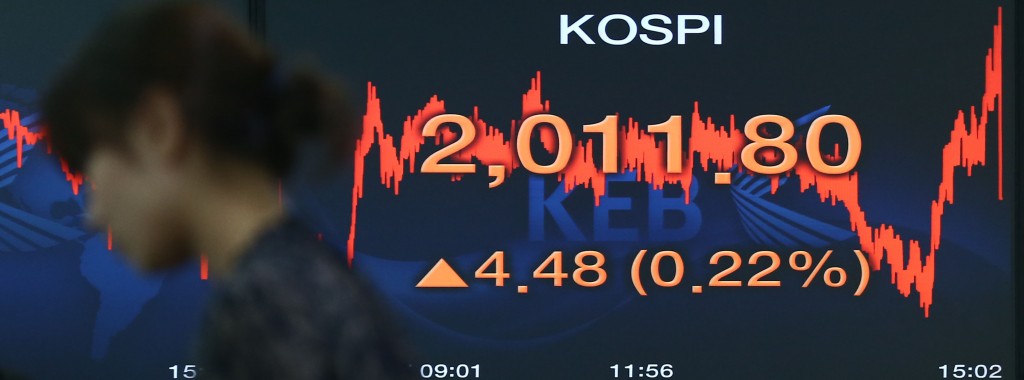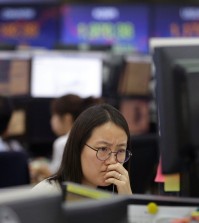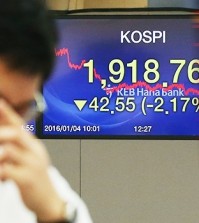- California Assembly OKs highest minimum wage in nation
- S. Korea unveils first graphic cigarette warnings
- US joins with South Korea, Japan in bid to deter North Korea
- LPGA golfer Chun In-gee finally back in action
- S. Korea won’t be top seed in final World Cup qualification round
- US men’s soccer misses 2nd straight Olympics
- US back on track in qualifying with 4-0 win over Guatemala
- High-intensity workout injuries spawn cottage industry
- CDC expands range of Zika mosquitoes into parts of Northeast
- Who knew? ‘The Walking Dead’ is helping families connect
Foreign Buying of Seoul Stocks Hits Record High
Overseas Investors Snap Up $7.74 Billion Worth in September

Overseas investors snapped up a net 8.3 trillion won (US$7.74 billion) worth of local equities last month.
(Yonhap)
(Yonhap) Foreigners’ net buying of South Korean stocks hit a record monthly high in September as sound economic fundamentals quelled concerns about a possible U.S. stimulus cut, the financial regulator said Sunday.
Overseas investors snapped up a net 8.3 trillion won (US$7.74 billion) worth of local equities last month, the highest amount tallied ever, the Financial Supervisory Service (FSS) said, adding that it marked a third consecutive month of a foreign buying spree.
In August, foreigners bought a net 1.52 trillion won, the FSS said.
The value of their shareholdings stood at 417.4 trillion won in September, or 31.9 percent of the total market capitalization, slightly up from 31.4 percent the previous month.
The record-high net purchase came as the Seoul market showed strong economic fundamentals against growing concerns over a possible tapering of the U.S. monetary easing, unlike other Asian neighbors such as Indonesia and Malaysia that saw their currencies tumble, the regulator said.
U.S. investors snapped up the largest amount of 2 trillion won last month, followed by Britain and Singapore with a net 1.4 trillion won and 1.2 trillion won, respectively.
The outstanding amount of local bond investments by foreigners reached 98.2 trillion won at the end of September, down by 2.4 trillion won from a month earlier, as they reduced their holdings in monetary stabilization bonds upon maturity.
U.S. and British investors were redeemed with a combined 1.4 trillion won, leading the net outflow of bonds. In contrast, Switzerland and China invested a net 400 billion won and 200 billion won worth of local bonds, respectively.















